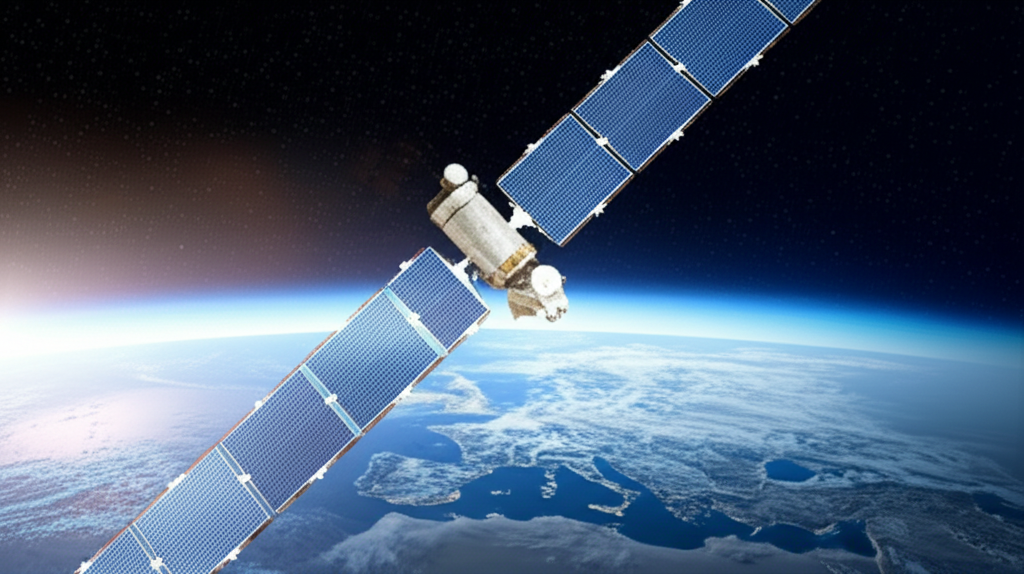Space-Based Solar Power: A Frontier for Europe’s Energy Future?
Researchers Propose Orbital Panels to Meet 80% of 2050 Renewable Demand, Study Suggests Economic Benefits
The prospect of harnessing solar energy from orbit, a concept once relegated to science fiction, is gaining traction as a potential solution to Europe’s growing renewable energy demands. A recent study suggests that a network of solar panels positioned in space could theoretically supply up to 80% of the continent’s renewable energy needs by the year 2050. This ambitious proposal, detailed in research shared by The Guardian, outlines a future where continuous sunlight, unhindered by weather or nighttime, could fundamentally alter Europe’s energy landscape and potentially offer significant economic advantages.
The Orbital Advantage: Uninterrupted Sunshine
The core of the proposal lies in overcoming the inherent limitations of terrestrial solar power. Earth-based solar panels are subject to diurnal cycles and atmospheric conditions, meaning their output fluctuates. Space-based solar power (SBSP) systems, by contrast, would orbit the Earth, maintaining a constant line of sight to the sun. This perpetual exposure to solar radiation, the researchers argue, could provide a stable and predictable energy source, complementing or even replacing intermittent renewable sources like wind and ground-based solar.
Modeling Europe’s Future Grid
The study utilized a detailed computer model to simulate the integration of a hypothetical SBSP system into Europe’s projected power grid for 2050. According to the findings, such a system could not only meet a substantial portion of the continent’s renewable energy targets but also lead to considerable cost savings. Researchers suggest the overall cost of the European power system could be reduced by as much as 15%. Furthermore, the consistent energy supply from orbit could significantly decrease the reliance on large-scale battery storage, with the model indicating a potential reduction in battery usage by over two-thirds.
Economic Implications and Energy Security
Beyond the environmental benefits, the economic arguments for SBSP are compelling. By reducing the need for extensive battery infrastructure and smoothing out the variability of renewable energy sources, the system could streamline grid operations and lower overall energy costs for consumers. Proponents suggest that a reliable, baseload renewable energy source from space could enhance Europe’s energy security, making it less vulnerable to geopolitical shifts impacting fossil fuel supplies and improving grid stability.
Challenges and Perspectives on Implementation
While the potential benefits are significant, the concept of space-based solar power faces considerable hurdles. The most prominent challenge is the immense cost and complexity associated with launching, assembling, and maintaining large-scale structures in orbit. Developing the necessary technology for efficient energy transmission from space to Earth, likely through microwave or laser beams, also represents a substantial engineering feat. Questions remain about the long-term sustainability of such a massive undertaking, including potential space debris concerns and the energy required for manufacturing and deployment.
Moreover, the economic viability on a large scale is still a subject of ongoing analysis. Critics might point to the high upfront investment required, questioning whether the projected cost savings would materialize within a realistic timeframe or if the investment could be better directed towards optimizing existing terrestrial renewable technologies and grid infrastructure.
Path Forward and Future Research
The study serves as a significant theoretical exploration of SBSP’s potential. Moving from concept to reality would necessitate extensive further research, technological development, and international cooperation. Pilot projects and smaller-scale demonstrations would likely be crucial steps in validating the technology and assessing its practical feasibility. The energy sector, policymakers, and the scientific community will need to collaborate to address the technical, economic, and regulatory challenges that lie ahead.
Key Takeaways:
- A study suggests space-based solar panels could supply 80% of Europe’s renewable energy by 2050.
- This orbital system could reduce overall European power system costs by up to 15%.
- It may also decrease the need for battery storage by more than two-thirds.
- The concept aims to overcome the intermittency of terrestrial renewable energy sources.
- Significant technical and financial challenges remain for the implementation of space-based solar power.
The journey towards harnessing solar power from space is long and complex, but the potential rewards for Europe’s energy future, as outlined by this research, warrant continued exploration and careful consideration.
References:


























